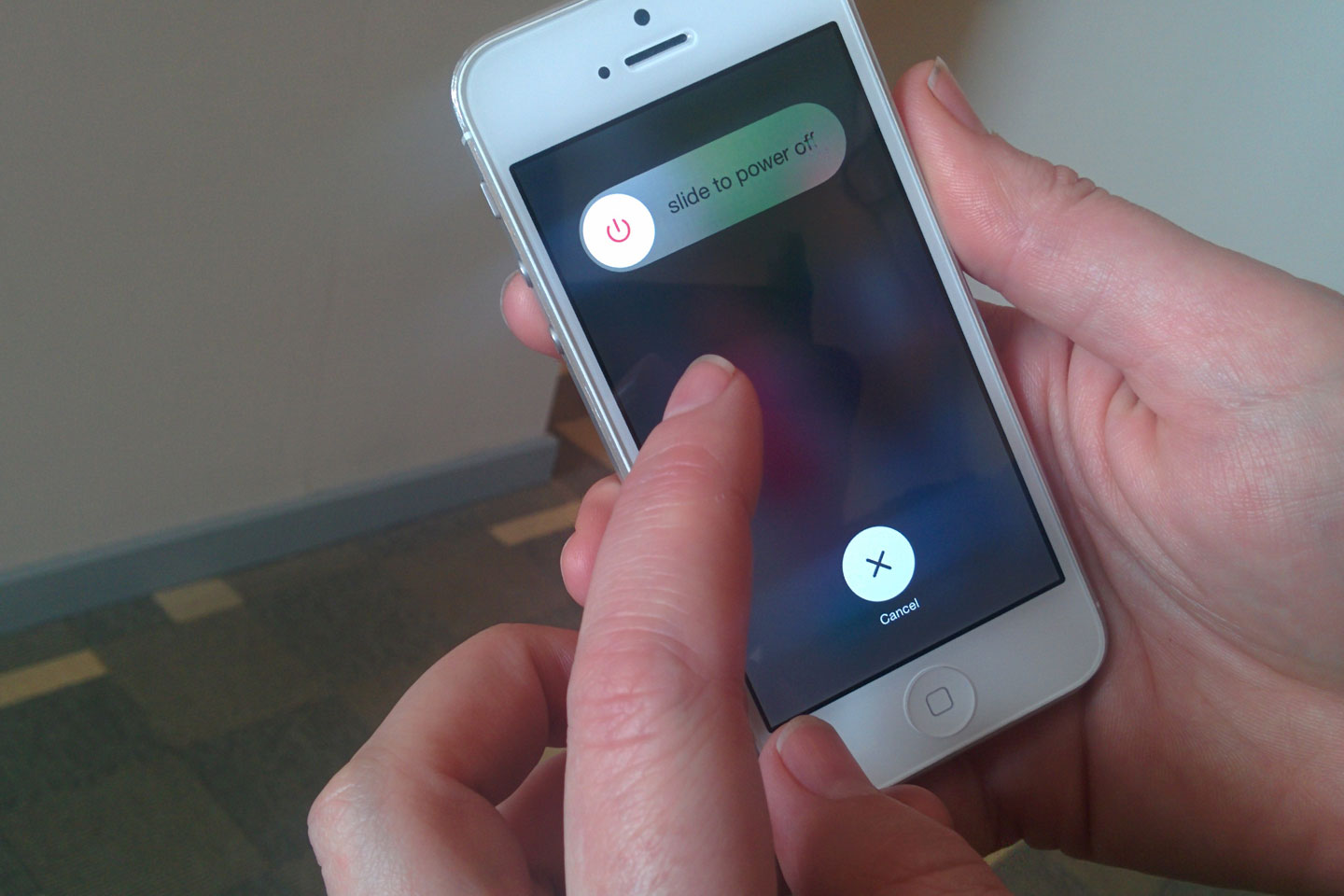Students react to the technology-free life.
The school’s leaders expected that some students wouldn’t make it through all three days, but they felt it was important to raise students’ awareness of how they use their devices. “I have a long history of working to promote technology,” said Howard Levin, the school’s director of educational innovation and information services. ”It’s really interesting that now the issues that are the most important to me are working to promote conscious, mindful use and learning to disconnect.”
Levin has no doubt that the school’s iPad program is helping students be more effective producers, creators and synthesizers of information, but he’s also aware that technology has insinuated itself deeply into his students' lives and they may not even be aware of what life could be like without it. While this tech timeout is short, just three days, he says that’s enough to get kids reflecting on how they use technology. Maybe they’ll even begin strategizing ways to regularly disconnect.
“A lot of what we are targeting with our tech timeout is the interruptions of social media and the pingings and the notifications that interrupt attention,” Levin said. Convent & Stuart Hall allow students to use their phones and iPads anytime during school (nothing is blocked), and teachers are trying to help students build the life skill of recognizing when it’s time to pay attention and when it’s all right to zone out.
HOW DID THE STUDENTS DO?
“It made me way more creative with my time and it gave me a sense of relief,” Horowitz said. “Whereas if I had technology, I would feel like I have to check Instagram." It was hard to get used to not having his phone, he said. The first day he was anxious, reflexively reaching into his pocket, but by the third day he felt something akin to freedom. He went surfing, bounced on the trampoline and went on walks.
“I feel very addicted to social media and stuff, or dependent is a better way to describe it,” Horowitz said. “It’s like habitual dependency, and I feel like I could do without that. It was really relieving for me to not have my technology and my phone on me.” He’s glad he made it through all three days, but isn’t sure he could force himself to take more timeouts in the future.
Other students weren't so strong. It wasn’t as hard to abstain from technology at school, said Ryley Aceret, because he was around his friends, who were also taking the challenge. But on Friday night, when he found himself alone, the temptation was too great.
“On the bus home it was getting late," said Aceret. "And just that temptation on the bus, [there was] no one to talk to, and so I had to pull out my phone, turn it on for the first time, rip open the seal,” he said.
“I felt normal again,” Aceret said of regaining his phone. “When I wasn't with my phone I felt different, like I was naked all the time.” His phone makes him feel secure. He was also imagining that his friends had already caved and were back on social media without him -- he had the fear of missing out.
That doesn’t mean he didn’t learn some valuable lessons from the time spent tech-free. “I usually take a really long time doing homework and that’s because I get sidetracked with technology and my phone,” Aceret said.
Recently he’s taken to shutting his phone off and secluding himself away from TVs or other distractions so he can concentrate on homework. With his technology distracting him, Aceret said homework can take up to five hours, but without it he can whip out his assignments in an hour and a half.
SURPRISING ANALOG CONNECTIONS
Technology has the odd distinction of both connecting people in unprecedented ways at the same time that it isolates them. Several students noticed that when they didn't have their phones or iPads, they were more ready to connect with friends and family, and more aware when those people were themselves wrapped up in devices.
“It was very ironic to see the generation that often criticizes our use of technology addicted to it when I wasn't using it,” Catherine Heinen said.
“It kind of changed the whole way we interact with each other,” Namara said. Because students always have their iPads or phones with them, they often play games at lunch or check fantasy sports stats. When no one had devices, Namara talked to his friends more and interacted with people he usually doesn't.
“I noticed interacting with people was a lot different,” Namara said. “People take out their phones as a way to mask the awkwardness of the conversation. But I noticed people looked up more.”
Without technology, Namara was also more dependent on his parents. His AP government teacher assigned homework to look up an interest group and be ready to explain what it was and how it got its money. Normally, Namara would just look up that information, take some notes and be done. But without technology he had to ask his mom to look it up for him.
“Half an hour down the line, my mother and I just had a conversation about politics,” Namara said. “And it went from special interest groups to the environment, and the economy, and what’s happening in the Middle East, and then my dad joined in. An hour in, we had a really good conversation about politics.”
That never would have happened normally, Namara said.
All the students recognized that class was different without technology, too. “It almost seemed like the whole school was on hold,” he said. “Every class we went to, it seemed like there was one point when we couldn't move on.” Instead, teachers led discussions about current events, played games requiring students to make persuasive arguments or practiced meditation.
“It was almost a wakeup call for how dependent we are on technology,” Namara said.


